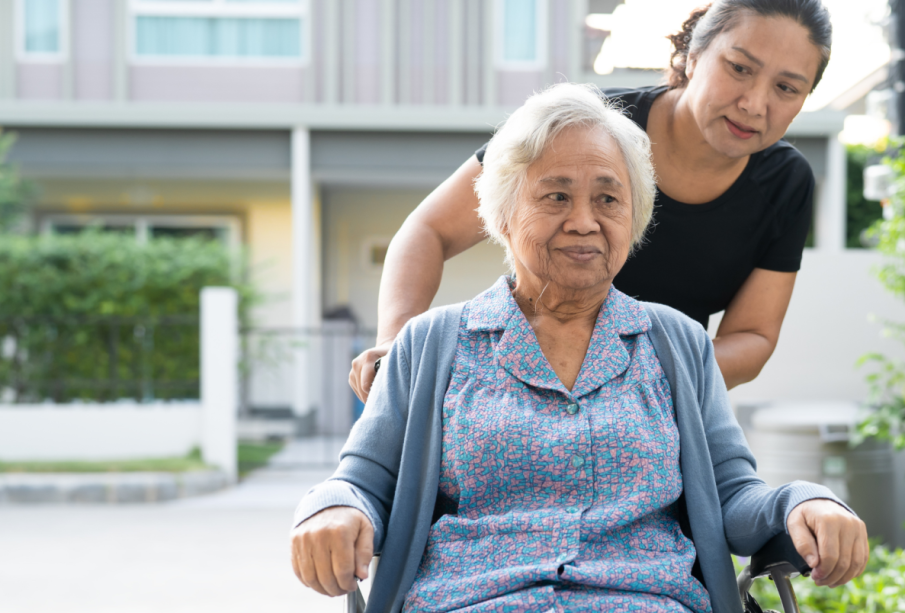Ways General Home Care Can Delay or Prevent Nursing Home Placement

As loved ones age, many families face difficult decisions about long-term care. When everyday tasks become more challenging, the immediate assumption is often that a nursing home is the only option. But for many seniors, that doesn’t have to be the case.
General home care services offer a flexible, compassionate alternative—one that allows seniors to remain in the comfort of their own homes while still receiving the help they need. In fact, with the right support system in place, it’s entirely possible to delay or even avoid the transition to a nursing facility altogether.
Here are several ways a general home care provider can help make that happen.
1. Promoting Safety at Home
Falls and injuries are some of the most common reasons seniors are admitted to nursing homes. Slippery floors, poor lighting, and mobility issues can all turn a simple walk to the kitchen into a major risk. A home caregiver helps mitigate these hazards by offering supervision and assistance with mobility, as well as keeping living spaces tidy and clutter-free.
Many general home care providers also conduct informal safety assessments during their visits, identifying trip hazards or suggesting helpful modifications like grab bars or non-slip mats. These simple precautions go a long way in helping seniors remain safe and independent at home.
2. Assisting with Daily Activities
When seniors begin to struggle with tasks like preparing meals, bathing, or managing medications, families often worry they’ll have no choice but to pursue full-time care. General home care services are designed to support exactly these kinds of non-medical needs.
Caregivers can assist with bathing, grooming, dressing, meal prep, light housekeeping, and transportation. These essential services help seniors maintain routines and preserve their dignity—two things that are vital for mental health and self-esteem.
By bridging the gap between full independence and total dependence, a general home care provider can make it possible for seniors to continue aging in place.
3. Reducing the Risk of Social Isolation
Social isolation is not just emotionally damaging—it’s also a serious health risk. Studies have shown that loneliness can increase the risk of cognitive decline, depression, and even early mortality. Unfortunately, many seniors who live alone experience long stretches without meaningful social interaction.
Home care companions offer more than practical help—they provide connection. Whether it’s through conversation, shared meals, or activities like games and walks, this social engagement helps seniors feel valued and seen. Regular companionship can significantly improve mood, motivation, and even memory retention.
In some cases, this emotional support is what makes the difference between thriving at home and needing institutional care.
4. Helping Manage Chronic Conditions
Many older adults live with one or more chronic conditions—such as diabetes, arthritis, or heart disease—that can become more difficult to manage over time. While general home care does not include medical treatment, caregivers can help with basic tasks that support disease management.
This might include assistance with mobility to reduce joint pain, meal preparation tailored to dietary needs, or reminders to take medications. They can also monitor for visible symptoms (like swelling or fatigue) and alert family members if something seems off.
When chronic conditions are managed proactively at home, the likelihood of complications—and the need for emergency care or a nursing home admission—drops significantly.
5. Supporting Family Caregivers
Family caregivers play a vital role in keeping seniors at home—but without support, they often burn out. Over time, the emotional, physical, and logistical demands of caregiving can become overwhelming, especially when caregivers are juggling jobs, children, or their own health issues.
Bringing in a general home care provider offers much-needed relief. Whether it’s for a few hours a day or a few days a week, respite care allows family members to rest, recharge, and focus on other responsibilities.
By preventing burnout and preserving the family caregiver’s ability to provide support, home care services contribute to the overall stability of the senior’s living situation.
6. Adapting to Changing Needs
One of the great strengths of home care is its flexibility. Services can be scaled up or down depending on the client’s evolving needs. For instance, someone recovering from surgery may need more frequent visits for a few weeks, while another client may start with help only twice a week and gradually increase support over time.
This adaptability makes home care a practical option even as circumstances change. Instead of abruptly moving into a nursing home due to a short-term setback or minor decline, seniors can receive appropriate support while staying in familiar surroundings.
7. Enhancing Quality of Life
At the heart of every care decision is a desire for a better life—one that’s safe, meaningful, and dignified. For many seniors, the comfort of their own home, surrounded by familiar belongings and routines, offers a deep sense of peace and autonomy that no institution can match.
General home care helps preserve this lifestyle. It enables seniors to maintain control over their schedule, enjoy favorite activities, and receive personalized attention—all of which contribute to better emotional and physical well-being.
Nursing homes provide an important service for those who need 24/7 medical supervision, but they’re not the only option. With the help of a compassionate, skilled general home care provider, many seniors can continue living independently for years longer than they thought possible.
By supporting safety, routine, social connection, and family involvement, home care empowers seniors to age in place—and helps families make decisions based on dignity, not desperation.













